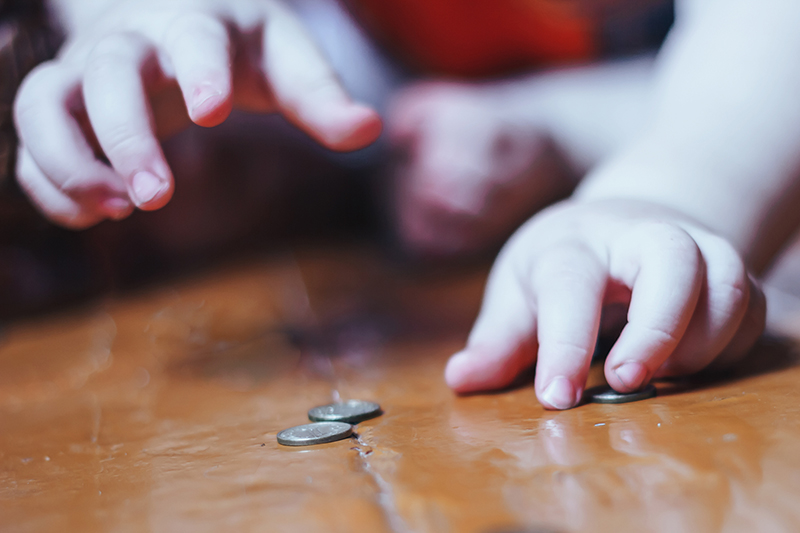Families For Life | Safe Home for Your Baby

As your baby grows with increased mobility, you may have to introduce new safety measures.
Making your home safe for baby
At this stage, your baby may start to explore by crawling and pulling on anything to stand upright. His newfound mobility brings a different set of safety concerns. While his tiny hands can reach for possible dangers, his wobbly legs can give way and result in potential head and body injuries. Between 9-12 months, your baby may start to walk, climb and pick up food and small objects with his fingers.
Since your baby is likely to be active, you may need to make changes to your house to make it safe for him to explore.
Here is a look at some safety pointers:
Try to stay within an arm’s reach of your baby. If you need to leave him for a while, place him in a safe place such as a playpen.
Keep everything within reach during bath time. Never leave your baby unattended or alone in the bath, even for a moment. Always have a hand to support him when he is in the water. Babies can drown in as little as 5 cm of water.
As soon as your baby can sit upright, move the mattress to the lowest position in the cot to prevent falls.
Do not use a baby walker as it topples over easily and allows your baby to get to dangerous places quickly.
Choose furniture with rounded corners or use edge protectors to cushion any bumps.
Install safety gates in areas that you do not want your baby to crawl or stumble into, such as stair landings and kitchen.
Small objects such as coins, buttons or parts of toys are choking hazards. Keep them out of your baby’s reach. Always check that you do not leave small parts lying around for your little one to pick up. If you have items such as plastic bags lying around, remove them. Your baby can suffocate if he puts his head in it or choke if he bites on it.
Fit electric outlets with covers, so that your baby cannot explore them. Do not leave him unattended where electrical appliances are in use.
Fill the bottom drawers of a chest with heavier items. This will prevent it from toppling over, in case your baby climbs on it. Make sure that other things such as table bookcases, vases, lamps or anything that could topple over are anchored down.
Latch low cabinets and keep medicines and dangerous items such as pen knives, nail clippers or even cotton buds out of your baby’s reach.
Do not show your little ones how to unlock doors, drawers or latches. They are quick learners and may pull out dangerous items if you are not paying attention.
Remove pet care accessories such as dog dishes and litter boxes so that your baby cannot reach them.
Explore more
Contributed by:
Health Promotion Board's Parent Hub